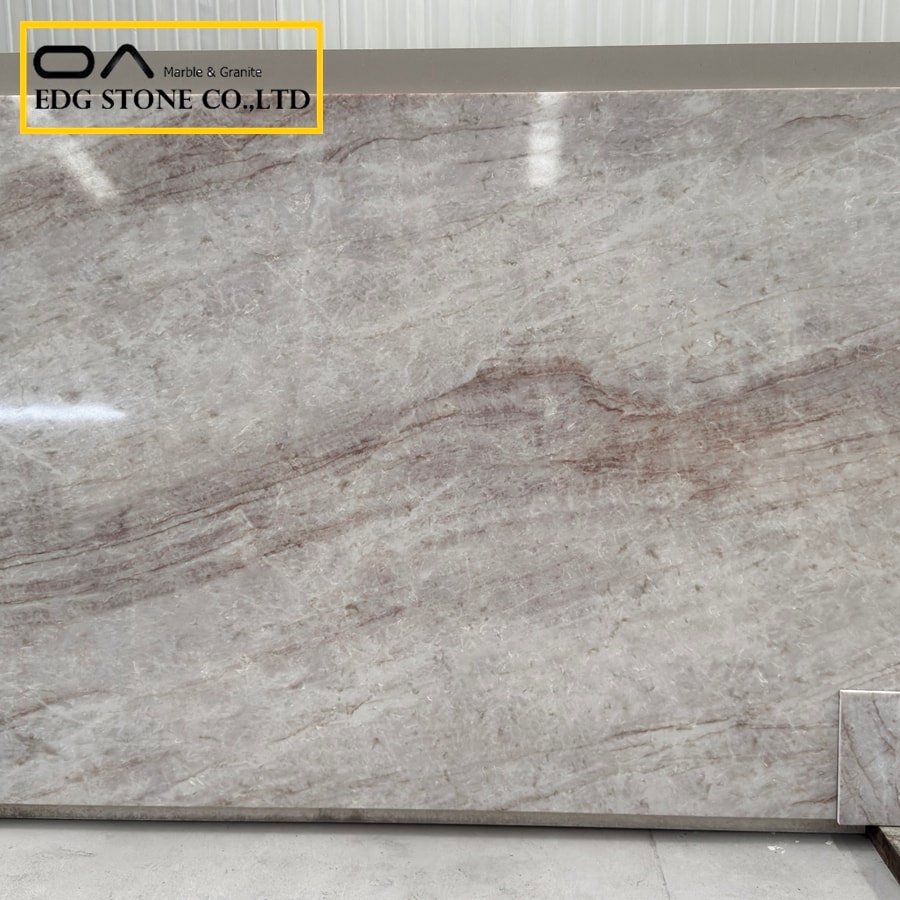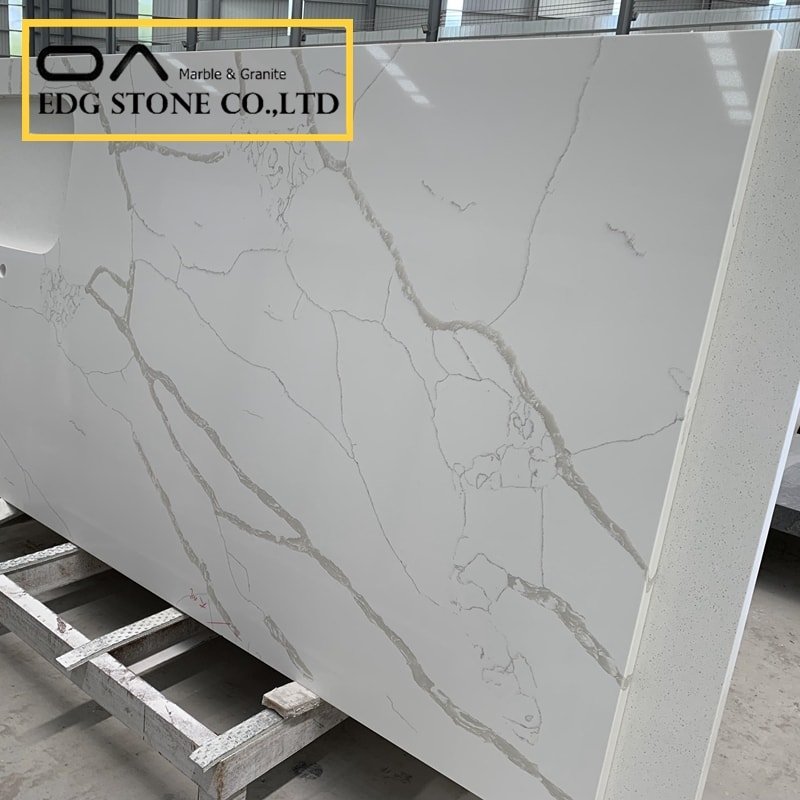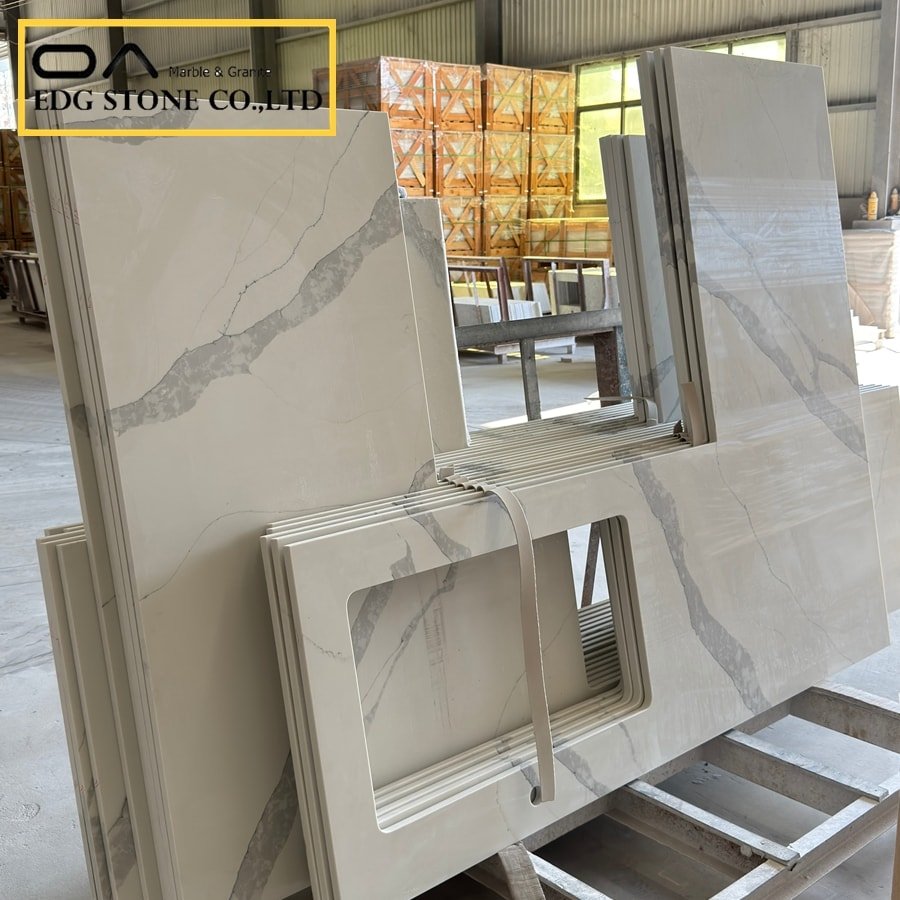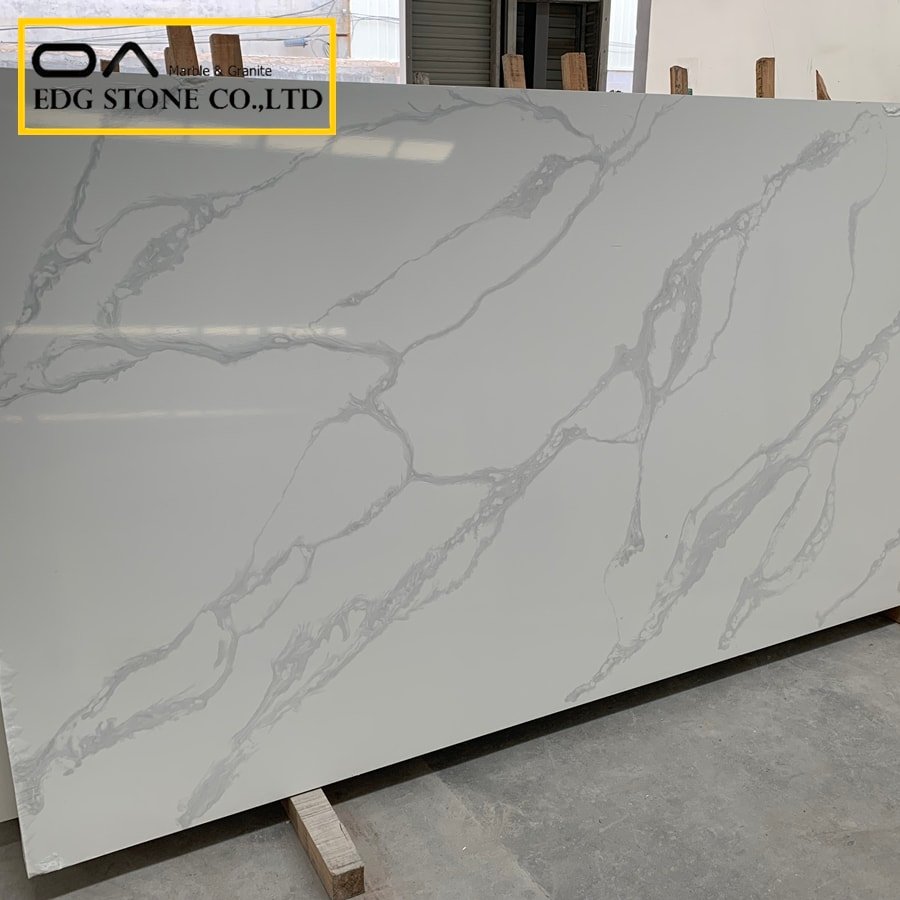Do not put high-temperature objects directly or for a long time on the quartz stone countertop.
Quartz stone has a good heat resistance and will not be scorched, deformed, or dented. It should be noted to avoid local overheating of the countertop. Materials have the characteristics of thermal expansion and contraction, and local overheating will cause the tabletop to expand locally, causing the tabletop to crack. Please note that you should avoid grilling the countertop with an open flame, and avoid directly rotating high-heat utensils (such as hot pots, hot water utensils, etc.) on the countertops. It is recommended to use pot pads with good insulation properties or use pots that can dissipate heat pad. Temperature is not the direct cause of damage to the countertop. Materials have the characteristics of thermal expansion and contraction. Local overheating often leads to accidental damage to the material. Overheating of the table should be avoided during use.
Don’t scratch the surface of quartz stone with super-hard sharp tools.
Quartz stone is a high-hardness composite material with high scratch resistance and will not be scratched or worn under normal use. What needs attention is to avoid using ultra-hard tools to forcefully scratch the countertop, such as diamonds, sandpaper, broken glass, broken ceramics (including sintered particles that may exist at the bottom of inferior ceramic vessels), high-hardness alloy knives, and high-hardness tools.
Keep the surface of the quartz stone as clean as possible.
Because the water contains bleaching agents and scales, after staying for too long, the color of the countertop will become lighter and affect the appearance. If this phenomenon occurs, please use a clean towel to absorb the water and let it dry naturally for 4-5 hours.
Strictly prevent strong chemicals from contacting the surface of quartz stone.
Quartz stone has long-lasting corrosion resistance, but it is still necessary to avoid contact with strong chemicals, such as de-additives, metal cleaning agents, stove cleaning agents; do not contact methylene chloride, strong acid cleaning agents, etc. If you accidentally come into contact with the above items, immediately wash the quartz stone surface with plenty of soapy water.
Remove scale.
Use a damp cloth to remove the scale, use a blade to remove it if necessary, and then wipe it with a dry cloth. Remove most stains and dirt. Clean with soap or detergent containing ammonia.
Avoid heavy hits and frequent hits on the quartz stone.
Although the quartz stone contains a compounding agent that improves the toughness of the material and has relatively high impact resistance, it is still necessary to avoid heavy hitting the countertop, frequent hitting the countertop, or pressing the suspended part of the countertop with gravity, especially the weak part of the countertop. Such as near the stove, near the water basin, corners, splicing parts, and the middle part of the large-span cabinet.









